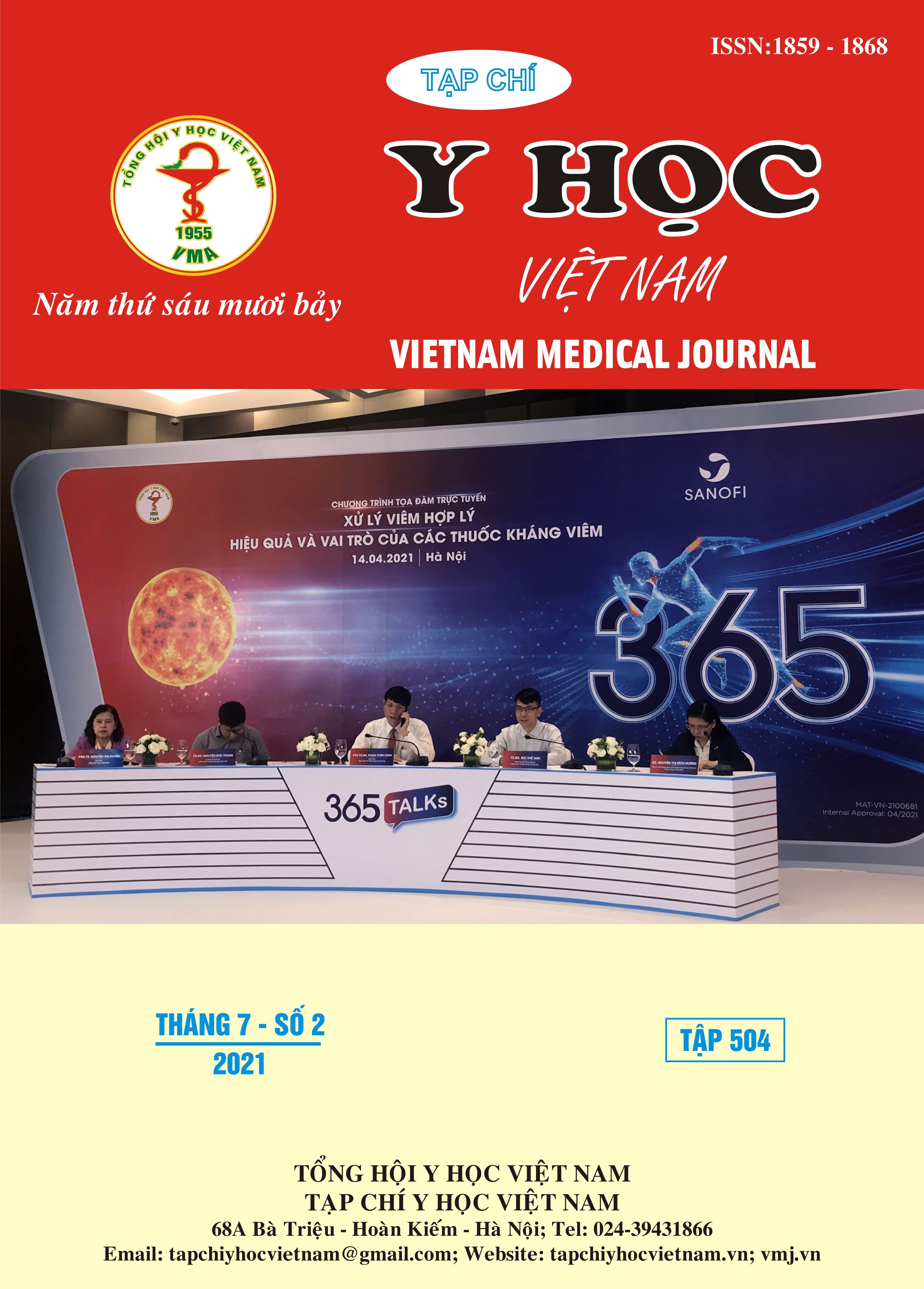ASSESSING HEALTH - RELATED QUALITY OF LIFE OF LIVING KIDNEY DONORS USING THE SHORT FORM 36 QUESTION
Main Article Content
Abstract
There is an imbalance between the source of transplanted kidneys and people with end-stage chronic kidney disease who have an increasing need for a kidney transplant. The main reason leading to the imbalance is the fear of affecting health after kidney donation. To overcome the above cause for kidney donors, thereby increasing the source of transplanted kidneys. We conduct a health-related quality of life assessment of people after kidney donation to provide scientific evidence to support the community's choice of kidney transplantation and to assist in expert advice in the field of kidney transplantation. Purpose of the research: Assessing the quality of life of people after kidney donation and some related factors. Research object and method: A cross-sectional descriptive study on 27 peoples on nephrectomy for live kidney donors at Thai Nguyen national Central Hospital, using the Short Form 36 questionnaire to assess the quality of life of the donor's kidney and some related factors. Results: The health-related quality of life of people after kidney donation is 84.9 points, the rated good quality of life was 88.89%. The physical component summary average score was 78.98 ± 10.08; the rated good physical component summary was 74.07%. The mental component summary average score was 90.82 ± 6.86; the rated good mental component summary was 96.3%. The factors of age, sex, occupation, body mass index with quality of life of people after kidney donation were different but there is not significant p > 0,05. Conclusion: The health-related quality of life after live donor nephrectomy isgood. The factors of age, sex, occupation, body mass index with quality of life of people after kidney donation were different but there is not significantp > 0,05.
Article Details
Keywords
Quality of life, kidney donation, SF36, kiney transplant
References
2. Nguyễn Tiến Quyết (2015). "Tiến bộ ghép tạng ở Việt Nam từ giấc mơ đến hiện thực". Hội nghị Khoa học ghép tạng Việt Nam lần thứ II, Hà Nội, tr. 4-8.
3. Dư Thị Ngọc Thu (2019). "Lịch sử ghép tạng trên thế giới và Việt Nam". Kỹ thuật ghép thận, Nhà xuất bản Đại học Quốc gia TP. Hồ Chí Minh, tr. 13-26.
4. Alhussain B M, Alqubaisi A K, Omair A, et al (2019). "Quality of life in living kidney donors: A single-center experience at the king abdulaziz medical city". Saudi J Kidney Dis Transpl, 30 (6), 1210-1214.
5. Frade I C, Fonseca I, Dias L, et al (2008). "Impact assessment in living kidney donation: psychosocial aspects in the donor". Transplant Proc, 40 (3), 677-681.
6. Hsieh C Y, Chien C H, Liu K L, et al (2017). "Positive and Negative Affects in Living Kidney Donors". Transplant Proc, 49 (9), 2036-2039.
7. Klop K W J, Timman R, Busschbach J J, et al (2018). "Multivariate Analysis of Health-related Quality of Life in Donors After Live Kidney Donation". Transplant Proc, 50 (1), 42-47.
8. Liu S, Zhou X, Dai H, et al (2020). "Assessing health-related quality of life of living kidney donors using the 36-item medical outcomes Short-Form-36 questionnaire: a meta-analysis". Psychology, Health & Medicine, 1-14.
9. Lopes A, Frade I C, Teixeira L, et al (2013). "Quality of life assessment in a living donor kidney transplantation program: evaluation of recipients and donors". Transplant Proc, 45 (3), 1106-1109.


